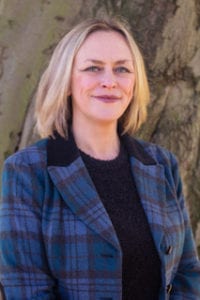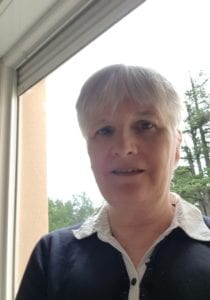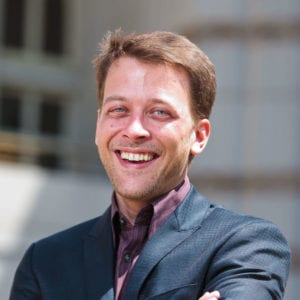Shakespeare and Community: Emerging Voices

Shakespeare remains the world’s most produced and studied playwright. However, these pursuits have disenfranchised significant segments of society by perpetuating a cultural elitism that belies the notion of accessibility inherent in his works. In the 20th century, a movement of programs, designed with and for the incarcerated, the differently abled, and those disadvantaged by socio-economic factors (to name a few), explore Shakespeare through their unique lived experience. “Shakespeare and Community” highlights these practices through a series of panel discussions, providing a reflective space wherein the larger community can gain a broader understanding of who Shakespeare “is” and “can be” in the context of a rapidly changing culture.
Shakespeare and Community Overview
For more than 400 years, the works of William Shakespeare have engaged communities across the globe with their ageless and versatile explorations of the human experience. His influence on contemporary Western culture is ever-present, providing the foundation for entire industries within the realms of arts and academia that explore his plays and poetry from a contemporary perspective. Today, Shakespeare remains the world’s most produced playwright and critical studies of his works are published on a seemingly daily basis. These pursuits, however, often declaring the “universality” of Shakespeare, have disenfranchised significant segments of society by perpetuating a cultural elitism that belies the notion of accessibility inherent in his works.
Shakespeare mythologized the trials and tribulations of the royal class, but his sympathies were most poignantly expressed through the viewpoints of his characters identified as “commoners”. Their existential struggles, exacerbated under the yoke of tyrannical rule, were reflected ever-upward to a nobility that benefited greatly from these same oppressive systems. Shakespeare was, in essence, a 17th century voice of humanism, arguing for social and political reforms that promoted greater equity for those systematically excluded from these unjust power structures.
Moving forward to the latter half of the 20th century, a movement of practitioners, academics, and activists sought to reinvent exclusionary literary and performance traditions by engaging contributors through a direct, participatory approach to Shakespeare’s works. These pioneers, fostering collaborative work with untapped communities, were at the vanguard of a new approach to performing arts engagement only recently defined as “Applied Shakespeare”. Inspired by the liberatory philosophies of educator Paolo Freire and theatre director Augusto Boal, Applied Shakespeare practitioners explore his works through the lens of social and racial justice, applying Shakespeare through a dialogic framework that mobilizes engagement into collective social action. Programs designed with and for the incarcerated, the differently abled, and those disadvantaged by socio-economic factors (to name a few) explore Shakespeare through their unique lived experience, often resulting in the development of new modes of self-expression and empowerment for participant and practitioner alike.
“Shakespeare and Community” highlights these practices and key figures in the field of Applied Shakespeare in Europe through a series of panel discussions, providing a reflective space wherein the larger community can gain a broader understanding of who Shakespeare “is” and “can be” in the context of a rapidly changing culture.
Key themes underpinning these sessions include:
- What is Applied Shakespeare?
- How might Shakespeare’s works serve as a catalyst for positive social change?
- Is there something intrinsic in Shakespeare’s works that provides the impetus for self-reflection and enhanced creative expression?
- Is Shakespeare a colonizing force in society that marginalizes certain communities? What can be done to reduce, and ultimately eliminate, this harm?
- What is the role of race in his works? Is his use of “othering” characters a racist practice or a commentary on racism?
- What is the academic response to the Applied Shakespeare movement?
- What are the future directions of this work?
Rowan Mackenzie

Rowan Mackenzie is both practitioner and academic. She is Artistic Director of Shakespeare UnBard and facilitates a number of theatre companies for those with experience of the criminal justice system (both inside and outside the walls of prison): The Gallowfield Players, Emergency Shakespeare and Beyond the Walls. These are the first permanent theatre companies of their kind in the UK; entirely collaborative between Rowan and the participants with all decisions made democratically as they work together to edit and perform full-length Shakespeare productions. Her PhD focused on creating space for Shakespeare with marginalised communities including those with mental health issues, learning disabilities, lived experience of the criminal justice system and of homelessness. She has won international awards for her work including a Butler Trust Commendation, Shakespeare Association of America Public’s Shakespeare, Inspirational Educator of the Year and Prisoner Learning Alliance Outstanding Individual. She is currently working on a monograph for Arden’s Shakespeare and Social Justice series, has published in a number of journals and has several forthcoming book chapters. She is described by one of the actors she works with as ‘a force of nature who saves lives, rebuilds lives, sees beyond the labels and creates hope’.
Florence March

Florence March is Professor in Renaissance and Restoration Drama at University Paul-Valéry, Montpellier (France), director of the Institute for Research on the Renaissance, the Neo-Classical Age and the Enlightenment (IRCL), a joint research unit of the French National Centre for Scientific Research (CNRS) and Université Paul-Valéry, and co-editor-in-chief of Cahiers Élisabéthains. A Journal of English Renaissance Studies. Her research currently focuses on Shakespearean stage configurations in twentieth- and twenty-first centuries Europe, particularly in festivals, and the relationship between stage and audience or ‘pact of performance’. She has published extensively on Shakespeare’s structuring function in southern France festivals in journals (Shakespeare Jahrbuch, Shakespeare Studies, Litteraria Pragensia…), in book chapters (The Shakespearean World, Routledge, 2017, Shakespeare and the Supernatural, MUP, 2020), in her monograph Shakespeare au Festival d’Avignon (2012) and in the book she has co-edited with Nicoleta Cinpoes and Paul Prescott, Shakespeare on European Festival Stages, forthcoming from Bloomsbury/Arden.
Her collaborations with the most important two French theatre festivals in terms of attendance and international visibility, the Avignon Festival and Le Printemps des comédiens (The Actors’ Spring) in Montpellier, which both claim to be democratic festivals, has led her to engage with Shakespeare and citizenship. In 2016 she has launched with Janice Valls-Russell and Jean Varela, the director of Montpellier’s festival, a research action programme on Shakespeare and education in six high schools, which has been included in a national framework agreement with the French Culture Ministry, and has led Janice and Florence to join a research network of the French National Centre for Scientific Research (CNRS) on education issues. Florence has authored a book chapter on this experience, for a volume forthcoming from Cambridge University Press. She is also a member of the international advisory board of the “Cambridge Elements in Shakespeare and Pedagogy” series. She has followed closely the prison programme led by Olivier Py, the director of the Avignon Festival as well as a distinguished writer, theatre director and actor, between 2014 and 2021. Py has initiated inmates from the male penitentiary of Avignon – Le Pontet to theatre practice through weekly workshops leading to productions of Shakespeare and Ancient Greek tragedies, which they perform behind bars, as well as out of prison, during the festival. She was recently invited to give a paper on this programme at a seminar of Sorbonne-Université and has authored a contribution for the next issue of the academic journal Sillages critiques.
Janice Valls-Russell

Janice Valls-Russell is a Principal Research Associate of France’s National Centre for Scientific Research (CNRS), a member of the Institute for Research on the Renaissance, the Neo-Classical Age and the Enlightenment (IRCL) and a joint research unit of the CNRS and Université Paul Valéry, Montpellier (France). Her main professional areas of interest are the early modern reception of classical mythology and present-day engagements with Shakespeare in performance and education, with a focus on Europe. She is the author of dozens of articles and book chapters, has co-edited Interweaving Myths in Shakespeare and his Contemporaries (2017), Thomas Heywood and the Classical Tradition (2021), Shakespeare’s Others in 21st-Century European Performance: The Merchant of Venice and Othello (Arden Shakespeare, 2021, forthcoming), collections of essays on performance, and has translated John Gross’s Shylock: A Legend and Its Legacy into French. She is a member of the editorial board of Cahiers Élisabéthains.
Janice’s interest in the work of the all-boys company Edward’s Boys (King Edward VI School, Stratford-upon-Avon) led to tours of the company to the south of France in 2016 and 2018 (which should resume in 2022). She has co-authored a book chapter on this experience, for a volume forthcoming from Cambridge University Press.
With Florence March, Janice leads a research action program in six high schools in Montpellier on Shakespeare and Citizenship, which has been included in a national framework agreement with the French Culture Ministry. Launched in 2016, this program brings together academics, theatre practitioners, high-school teachers, and their students in a hands-on approach to Shakespeare’s plays: through discussions and performance, the students, who come from very diverse backgrounds and neighborhoods, explore civic values such as togetherness, solidarity and mutual respect, and address gender, racial and other forms of discrimination. In helping build this project, Janice reconciles her research interests and her volunteer work in non-profit organizations in defense of children’s rights, for which she was received as Chevalier (Knight) into the Légion d’honneur, France’s highest order of merit, in 2012.
Abigail Rokison-Woodall

Abigail began her career as a professional actor, training at LAMDA. She completed her PhD at Trinity Hall, Cambridge University in 2006 after which she became a lecturer in Drama and English in the Education Faculty in Cambridge. In January 2013 she became Lecturer in Shakespeare and Theatre at the Shakespeare Institute, University of Birmingham. Abigail has written a number of journal articles and chapters on Shakespeare and other drama. Her first monograph, Shakespearean Verse Speaking, was published in 2010 by Cambridge University Press, and won the inaugural Shakespeare’s Globe first book award. She has published three more books – Shakespeare for Young People: Productions, Versions and Adaptations (Bloomsbury Arden, 2013) and Shakespeare in the Theatre: Nicholas Hytner (Bloomsbury Arden, 2017) and As You Like It: Language and Writing (Bloomsbury Arden, 2021). She is the co-general editor with Michael Dobson and Simon Russell Beale of The Arden Shakespeare Performance Editions for which she has edited A Midsummer Night’s Dream and Hamlet and is currently editing King Lear. She is also co-general editor of the Arden Shakespeare in Performance A Practical Guide series, for which she is co-writing Shakespeare and Lecoq. She is currently working with RSC Education on a project about teaching Shakespeare to D/deaf children.
Scott Jackson

Scott Jackson (Mary Irene Ryan Family Executive Director) provides executive oversight for the many Shakespeare-related programs housed at the University of Notre Dame, with a particular focus on engaging our local community through the works of William Shakespeare. Previously he served as Executive Director for the Fairbanks Shakespeare Theatre in Fairbanks, Alaska. At FST, he produced and performed in outdoor Shakespeare productions staged under the midnight sun at venues throughout Alaska and toured around the globe (most notably at VIII World Shakespeare Congress in Brisbane, Australia, and the Edinburgh Fringe Festival in Scotland). From 2000-2003, Scott was the Business and Legal Affairs Coordinator for Brighter Pictures, LTD (now a part of Endemol UK), one of the United Kingdom’s most successful independent television and film production companies. He holds a BA in Theatre from Indiana University Bloomington, as well as intensive study in acting at the London Centre for Theatre Studies. Scott served as the Treasurer for the Shakespeare Theatre Association from 2013–2017 and is an instructor of Acting Process at the University of Notre Dame. A firm believer in the power of Shakespeare and the theatre arts to effect positive social change, he is currently teaching a weekly Shakespeare in performance course at Westville Correctional Facility near Michigan City, IN, and is the co-founder of the Shakespeare in Prisons Network.
Additional Resources
Rowan Mackenzie:
- ‘Seeing myself through the lens of a character’ Locked Up Living Podcast (2020)
https://player.fm/series/the-locked-up-living-podcast/seeing-myself-through-the-lens-of-a-character-butler-trust-commendee-rowan-mackenzie-on-forming-a-theatre-company-in-a-prison - ‘Shakespeare and Prison Learning’ webinar with Prisoner Learning Alliance (July 2020)
https://prisonerlearningalliance.org.uk/2020/07/webinar-with-rowan-mackenzie-shakespeare-and-prison-learning/ - Butler Trust Commendation (2021)
https://www.butlertrust.org.uk/rowan-mackenzie/ - ‘“Study is like the heaven’s glorious sun” – Learning through Shakespeare for men convicted of sexual offences’, Humanities in Prison (Special Edition) (2021)
https://www.mdpi.com/2076-0787/10/1/16
Florence March:
- “Shakespeare in Captivity”: Florence March interviews Olivier Py, director of the Avignon Festival (video in English, 2018)
https://www.youtube.com/watch?v=3IpWocYFbX0 - “Shakespeare’s Theatre is an Excellent Vector for Citizenship”: Interview with Florence March on France Culture, June 2021 (podcast in French)
https://www.franceculture.fr/emissions/affaire-en-cours/affaires-en-cours-du-vendredi-11-juin-2021 - “Le Printemps des Collégiens: Shakespeare and Citizenship, A Collaborative Research Project of the IRCL”, July 2021 (article in French by Florence March, La Lettre de l’INSHS, 72, July 2021, CNRS)
https://www.inshs.cnrs.fr/sites/institut_inshs/files/download-file/lettre_infoINSHS_72.pdf
Abigail Rokison-Woodall:
- “Signing Shakespeare” – Hay Lunchtime Lecture (2021):
https://www.youtube.com/watch?v=SjTFVyFNbnc - “Making Macbeth Accessible to Deaf Learners”, BATOD Magazine (2019):
https://www.batod.org.uk/wp-content/uploads/2020/05/Making-Macbeth-accessible-article.pdf
View the Event
Presented by Notre Dame London Global Gateway
Subscribe to the ThinkND podcast on Apple, Spotify, or Google.
Featured Speakers:
- Rowan Mackenzie, Artistic Director, Shakespeare UnBard
- Florence March, Professor in Renaissance and Restoration Drama, University Paul-Valéry, Montpellier (France); Director of the Institute for Research on the Renaissance, the Neo-Classical Age, and the Enlightenment (IRCL), French National Centre for Scientific Research (CNRS) and Université Paul-Valéry; Co-Editor-in-Chief, Cahiers Élisabéthains: A Journal of English Renaissance Studies
- Janice Valls-Russell, Principal Research Associate, France’s National Centre for Scientific Research (CNRS), Institute for Research on the Renaissance, the Neo-Classical Age, and the Enlightenment (IRCL), Université Paul Valéry, Montpellier (France)
- Abigail Rokison-Woodall, Lecturer in Shakespeare and Theatre, Shakespeare Institute, University of Birmingham
- Scott Jackson, Mary Irene Ryan Family Executive Director, University of Notre Dame
